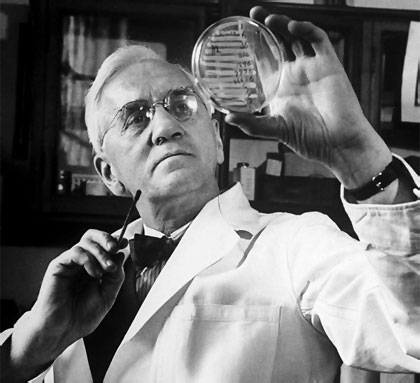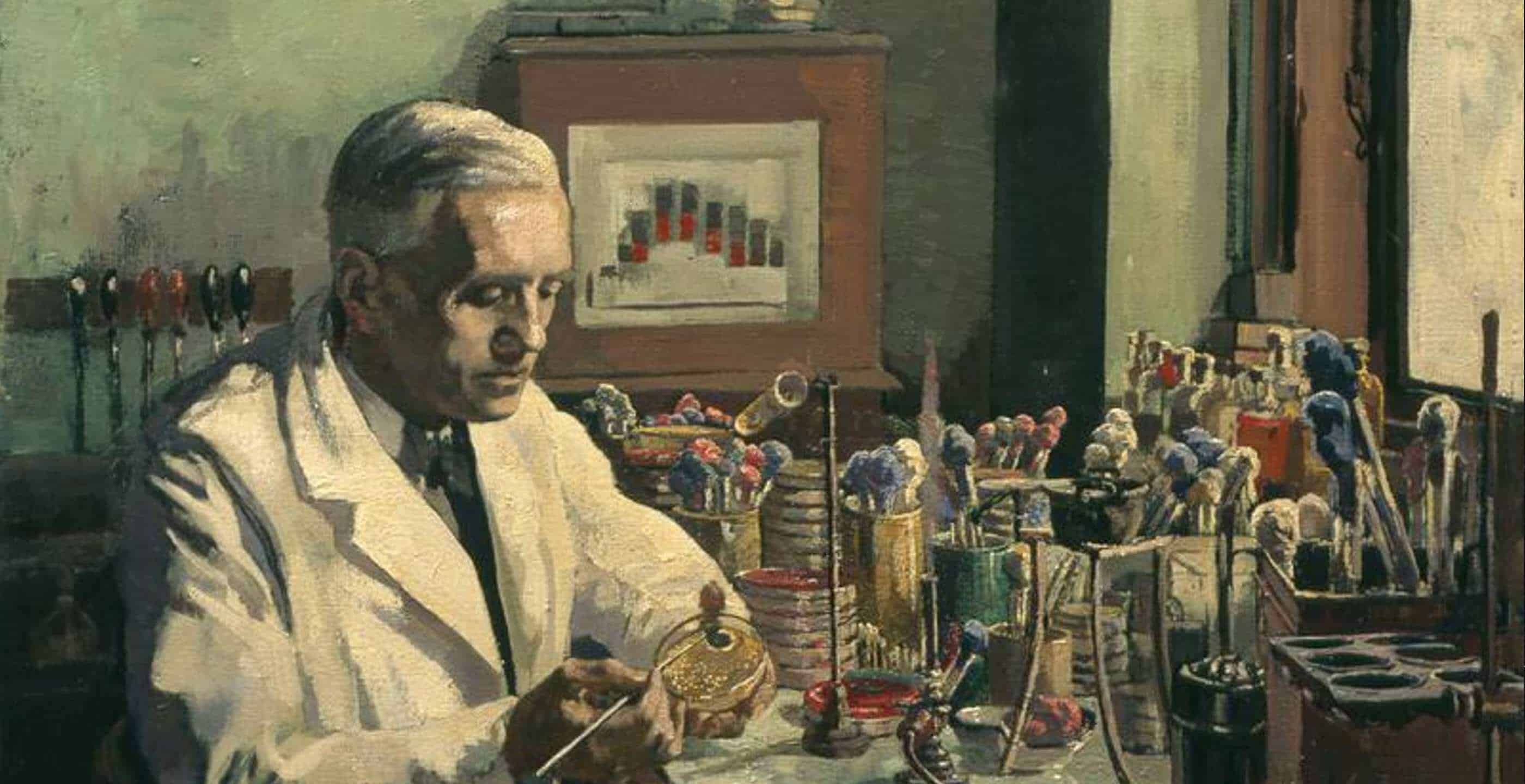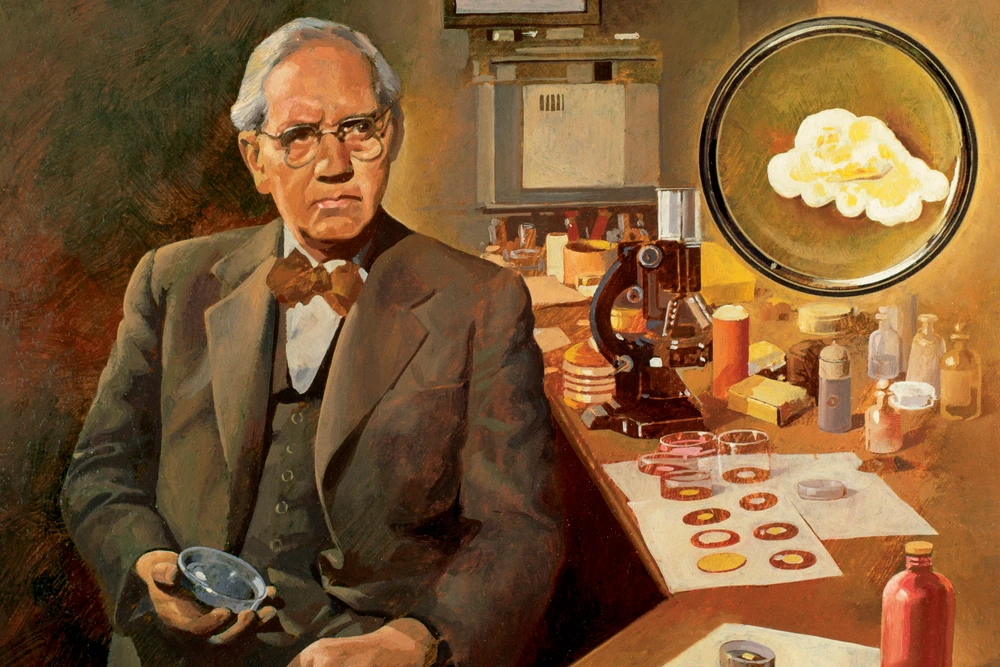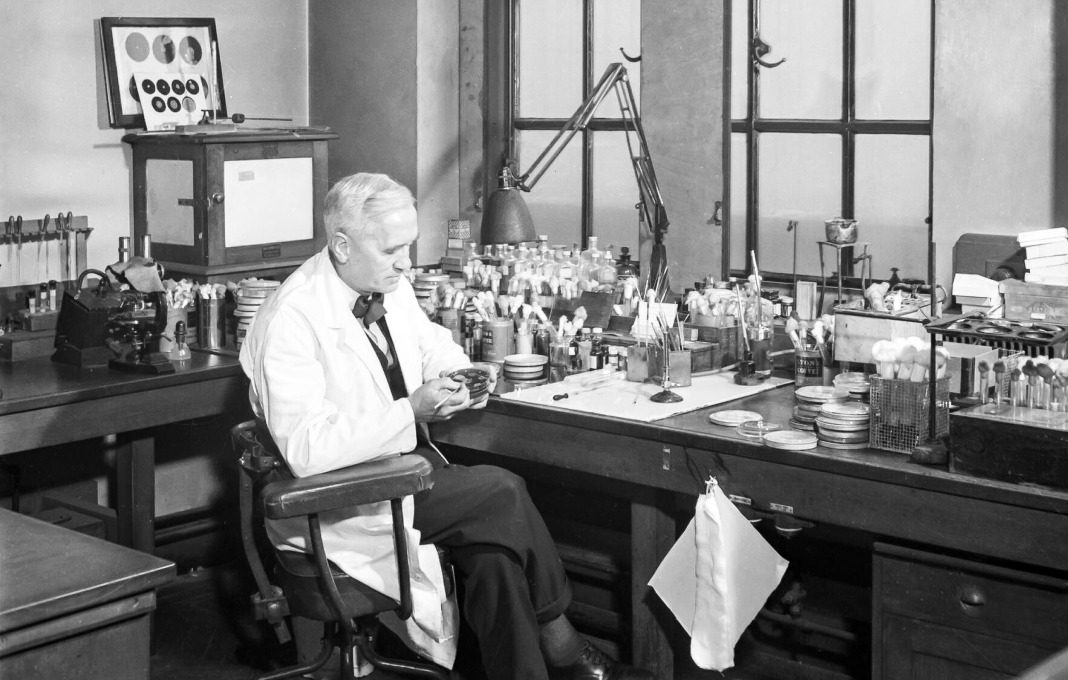Alexander Fleming: A Legacy of Scientific Discovery and Medical Advancement
Introduction:
Alexander Fleming, a Scottish bacteriologist, is renowned for his groundbreaking discovery of penicillin, which revolutionized medicine and saved countless lives. Born in 1881, Fleming's pioneering work in microbiology not only led to the development of the first antibiotic but also laid the foundation for modern antibiotics and changed the course of medical history. This essay explores the life, achievements, and lasting impact of Alexander Fleming, highlighting his contributions to science and human health.
Early Life and Education:
Alexander Fleming was born on August 6, 1881, in Lochfield, Scotland, to Hugh Fleming, a farmer, and Grace Stirling Morton. Raised in a rural environment, he developed a keen interest in biology and natural sciences from an early age. After attending local schools, Fleming enrolled at the Royal Polytechnic Institution (now the University of Westminster) in London, where he studied pharmacology. Later, he pursued a medical degree at St. Mary's Hospital Medical School, University of London, graduating with distinction in 1906.
Research Career:
Following his medical studies, Fleming embarked on a research career focused on bacteriology and immunology. He joined the Inoculation Department at St. Mary's Hospital as a research assistant under the mentorship of Sir Almroth Wright, a pioneer in vaccine development. Fleming's early research centered on the study of antibacterial substances produced by the body's immune system, laying the groundwork for his future discoveries in antimicrobial therapy.
Discovery of Penicillin:
In September 1928, while conducting research on staphylococci bacteria, Fleming made a serendipitous discovery that would change the course of medicine. He noticed that a petri dish containing Staphylococcus aureus culture had been contaminated with mold, leading to the formation of a clear zone where bacteria were inhibited. Fleming identified the mold as a strain of Penicillium notatum and observed its antibacterial properties, dubbing the substance "penicillin." This accidental discovery marked the birth of the world's first antibiotic.
Development and Impact of Penicillin:
Despite Fleming's groundbreaking discovery, the full potential of penicillin remained untapped until Howard Florey and Ernst Boris Chain, along with their team at the University of Oxford, successfully purified and produced penicillin in large quantities during the early 1940s. Their efforts paved the way for the mass production and widespread use of penicillin as a potent antibiotic. Penicillin revolutionized the treatment of bacterial infections, significantly reducing mortality rates associated with conditions such as pneumonia, sepsis, and wound infections during World War II and beyond.
Legacy and Recognition:
Alexander Fleming's contribution to medicine earned him widespread recognition and accolades. In 1945, he was awarded the Nobel Prize in Physiology or Medicine, jointly with Florey and Chain, for their role in the discovery and development of penicillin. Fleming's Nobel Lecture emphasized the importance of antibiotic therapy in combating infectious diseases and highlighted the need for responsible use to prevent the emergence of antibiotic resistance—a prescient warning that remains relevant today.
Continued Impact and Challenges:
penicillin and subsequent antibiotics have saved countless lives and transformed modern medicine, their overuse and misuse have led to the emergence of antibiotic-resistant bacteria, posing a significant global health threat. Addressing antibiotic resistance requires a multifaceted approach, including prudent antibiotic stewardship, investment in research and development of new antibiotics, and public education on the responsible use of antimicrobial agents.Development and Commercialization:
Following Fleming's discovery, efforts to isolate and purify penicillin's active ingredient were undertaken by other scientists, most notably Howard Florey and Ernst Boris Chain at the University of Oxford. Their work, supported by funding from the British government and the United States, led to the large-scale production of penicillin during World War II. By 1945, penicillin had become widely available, transforming the treatment of bacterial infections and reducing mortality rates from conditions such as pneumonia, sepsis, and wound infections.
Impact on Healthcare:
The introduction of penicillin revolutionized healthcare by providing a safe and effective treatment for bacterial infections. Prior to its discovery, infectious diseases were a leading cause of death worldwide, with limited options for treatment. Penicillin's broad-spectrum activity and low toxicity heralded a new era in medicine, enabling the successful treatment of previously life-threatening conditions. Its impact extended beyond the battlefield, shaping modern surgical practices, childbirth, and the management of chronic illnesses.
Challenges of Antibiotic Resistance:
Despite its transformative impact, the widespread use of antibiotics has led to the emergence of antibiotic-resistant bacteria, posing a significant threat to public health. Overuse, misuse, and inadequate regulation of antibiotics have accelerated the development of resistance, rendering some antibiotics ineffective against common infections. Addressing the challenge of antibiotic resistance requires a multifaceted approach, including judicious antibiotic prescribing, infection prevention and control measures, and the development of novel antimicrobial agents.
Fleming's Legacy:
Alexander Fleming's discovery of penicillin earned him numerous accolades, including the Nobel Prize in Physiology or Medicine in 1945, which he shared with Florey and Chain. Beyond his scientific contributions, Fleming's legacy endures as a symbol of scientific curiosity, perseverance, and the power of serendipity in discovery. His work laid the groundwork for subsequent advancements in antibiotic research and inspired generations of scientists to explore new frontiers in medicine.
Conclusion:
In conclusion, Alexander Fleming's discovery of penicillin stands as one of the most transformative achievements in the history of medicine. His pioneering work laid the foundation for the development of antibiotics, revolutionizing the treatment of bacterial infections and saving millions of lives worldwide. Fleming's legacy serves as a testament to the power of scientific curiosity, perseverance, and serendipity in driving innovation and advancing human health. As we confront the challenges of antibiotic resistance and infectious diseases in the 21st century, Fleming's timeless insights continue to inspire and guide efforts to safeguard public health and promote sustainable medical practices.















































